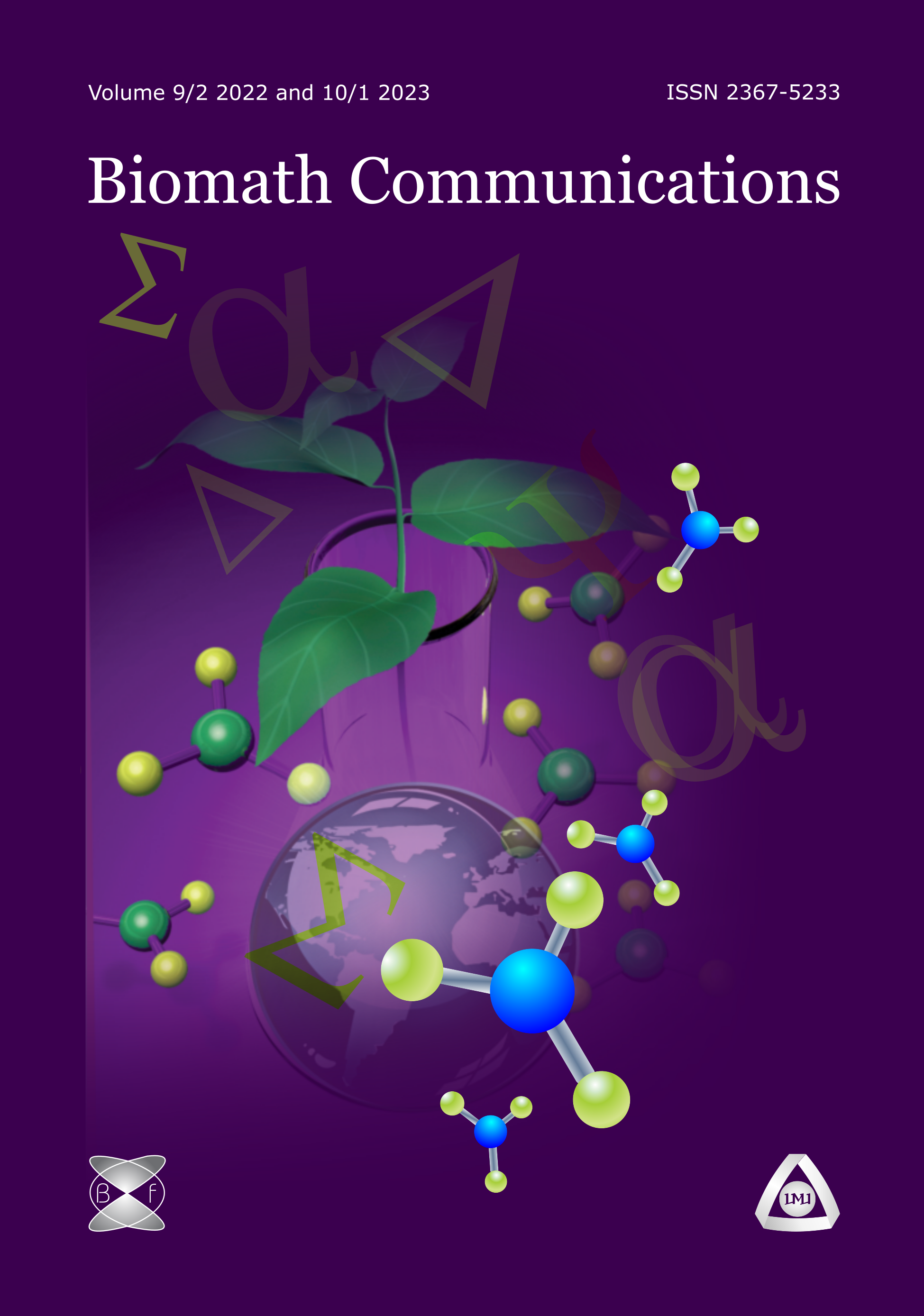A modeling approach for cell growth based on enzyme kinetics
DOI:
https://doi.org/10.11145/bmc.2016.12.297Abstract
The enzyme kinetics reaction scheme of single enzyme-sub-strate dynamics, originally proposed by V. Henri, is considered. The system of ODEs induced by the reaction scheme is compared to two approximate models, namely the Michaelis-Menten model and the model of exponential decay. Validity conditions for the Michaelis-Menten model are briefly reviewed. A case specific for ``superefficient enzymes'' is used as a setting for a comparison between the three models via computational experiments. The case study proves the importance of validating the applicability of the approximate model.
A novel cell growth model is proposed and analyzed. The approach of model development is to make use of the original Henri enzyme kinetics law in the context of metabolic processes in living cells, namely cell growth. Two approximations corresponding to different cell growth phases are introduced in order to study the model analytically.
Downloads
Published
Issue
Section
License
The journal Biomath Communications is an open access journal. All published articles are immeditely available online and the respective DOI link activated. All articles can be access for free and no reader registration of any sort is required. No fees are charged to authors for article submission or processing. Online publications are funded through volunteer work, donations and grants.
Authors who publish with this journal agree to the following terms:
- Authors retain copyright and grant the journal right of first publication with the work simultaneously licensed under a Creative Commons Attribution License 4.0 that allows others to share the work with an acknowledgement of the work's authorship and initial publication in this journal.
- Authors are able to enter into separate, additional contractual arrangements for the non-exclusive distribution of the journal's published version of the work (e.g., post it to an institutional repository or publish it in a book), with an acknowledgement of its initial publication in this journal.
- Authors are permitted and encouraged to post their work online (e.g., in institutional repositories or on their website) prior to and during the submission process, as it can lead to productive exchanges, as well as earlier and greater citation of published work (See The Effect of Open Access).

